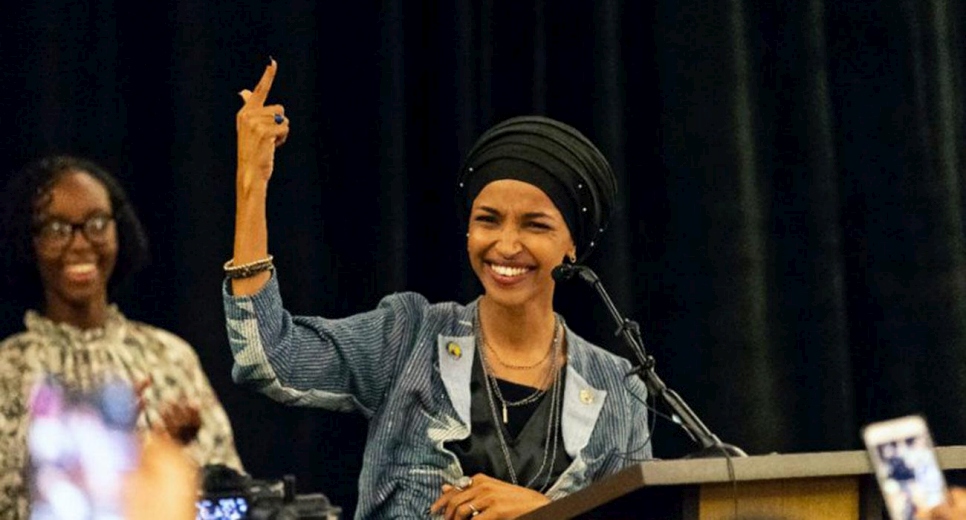U.S. Congresswoman elect Ilhan Omar’s win is seen as a global triumph and symbol of hope for refugees worldwide.
U.S. Rep.-elect Ilhan Omar gives her victory speech at the Minnesota Democratic Farmer Labor Party (DFL) election night party in St. Paul, Tuesday, Nov. 6, 2018. © Photo courtesy:Scott Takushi/Pioneer Press)
Last Tuesday in the U.S. state of Minnesota, thousands of miles away from Kenya, a former refugee made history. Ilhan Omar, a Somali-American who once called the East African country home, was elected to the United States Congress.
Omar, 36, fled Somalia’s conflict when she was just a child of eight years. She spent four years in a refugee camp in Kenya before she was resettled to the U.S. where years later, she would make history. As she gave a rousing victory speech following her historic win, she listed the many ‘firsts’ behind her name.
“I stand here before you tonight…as the first refugee ever elected to Congress.”
“I stand here before you tonight…as the first refugee ever elected to Congress,” she said amid applause.
Omar has also made history by becoming the first Somali-American, first hijab-wearing Muslim woman and the first woman of colour to represent Minnesota in Congress.
Ambassador Mohamed Abdi Affey, the UN Refugee Agency’s Special Envoy for the Horn of Africa reflected on Omar’s win, terming it a global victory for refugees.
“This victory gives hope to refugees around the world,” he said. “It shows that it’s possible to achieve such great success, given the opportunity.”
The Horn of Africa is home to over 1.5 million refugees, majority of whom are from Somalia. The Special Envoy believes that Omar’s story is one that resonates with refugees, especially those living in this region, and is a symbol of enduring hope for them.

Ilhan Omar addresses supporters in Minneapolis, Minnesota after becoming one of the first Muslim women elected to the US Congress. © Photo courtesy: AFP
“This victory gives hope to refugees around the world.”
“Ilhan’s case is a true example of how refugees can contribute to their country of return,” he said, adding that Somalia has a great future because Somalis in the diaspora and in the Horn of Africa hope to return to Somalia one day to rebuild it.
“They hope to return to a country that they’re proud of and having acquired the necessary skills and knowledge, move the country forward.”
Ambassador Affey, who is a strong proponent for the inclusion of refugees in the societies they live in, saw Omar’s victory as an example of how inclusion can be beneficial to host countries.
He expressed his gratitude to the host governments for their generosity, kind attention and hospitality towards refugees, adding that the best way to treat refugees is to include them in national plans.
“Refugees need to feel like part and parcel of the communities that have hosted them over a long period of time,” he added.
The Special Envoy explained that when refugees get a quality education and find opportunities for work, they are able to grow and can contribute to their country of origin more effectively when they finally return.
“…when we invest in refugees, we invest in the future of our own countries.”
He also saw an opportunity for countries to invest in refugees, noting that refugees can contribute to their economic development.
“This victory confirms how useful refugees are in whichever community they join,” he added. “It shows that when we invest in refugees, we invest in the future of our own countries.”
Share on Facebook Share on Twitter